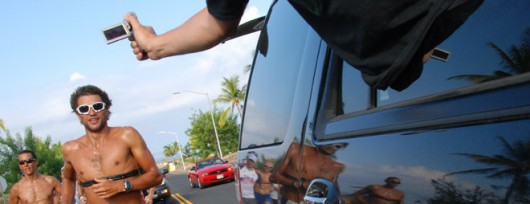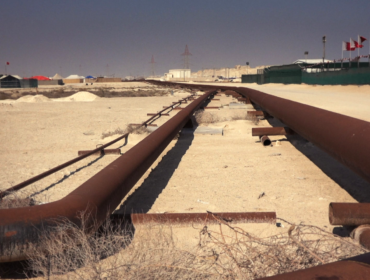Right at the beginning I want to underline, that I am not taking the position of a psychologist but more of a biologist.
»The word motivation comes from the Latin word for moving=movere and motus= movement. It describes the state of an organism that influences the direction and the energy load of the current behavior. By direction especially the focus on goals is meant. The energy load means the physical forces which drive the behavior.«
Source: wikipedia
Is motivation grounded in biology or psychology? Or both?
“The significance of the immune system for motivation”, was the headline of an article I was going to write about a few months ago, when I sent my topic list to an editorial office where I use to publicise. Back then I had a rather vague idea, on how I was going to tackle this interesting subject. When the date of publication came closer and I finally began to think about this topic in greater detail, I quickly realized that I was to going move towards an intersection of different sciences and thought models connected with the most controversial and antagonizing viewpoints.
In the following article I don’t intend to explain the different methods of motivational training but want to elucidate in greater depth the biological background and coherences that characterize a state of motivation. Motivation does not only include a state of mind, motivation also stands for a certain activity state of the body-mind unit. A specific body-mind-state is mainly generated by the super systems of regulation – central nervous system, immune system and hormones. Motivation is part of what Giorgio Varela has called the embodied mind.
Motivation describes my relation to the world around me
Motivation always describes a relationship to something. A motive is something that gives one an impulse to act. Hunger for example is a very strong and stable motive, hunger motivates you to eat. The motivation is so strong that the action is carried out without great effort. This needs not always be the case. People that go into a hunger strike are motivated so strongly by an ideal that the motivation to eat decreases or even disappears. A similar situation counts for very ill people. If eating causes them too much pain they prefer starving.
How about the motivation to deliver a peak performance?
Most of you have probably experienced that the motive “peak performance” is not half as stable as hunger. If the path ahead of you is characterized by the uncertainty of whether you chose the right means to achieve your goal, then these doubts lead quickly to fluctuating levels of motivation. The more options you have the more self-confidence, self-esteem you need to make your own choices without experiencing the situation as threatening to your motivation.
Beside your state of mind it is the body that can give you doubts, whether you are on the right track. Interpreting body signs is not easy, they may mislead you. You need a lot of experience to be sure of yourself, of your body and your mind. Whether you find yourself on the path to a peak performance at the right moment of time, nobody can tell except you. Motivation is closely related with self-assurance, therefore training, competing and motivation are definitely an issue worthwhile to look at in more detail.
Motivation, self perception and body feel
Motivation has to do with our self perception (self esteem), how we perceive our environment (goals) and how we see ourselves within that environment (expectations). Depending on how you take your bearings in this framework, your condition (behavior, mood) can range from highly motivated all the way to depressed.
Motivation can be defined as an internal condition that embodies an activity state of the nervous system, immune system and the hormones. If one agrees to take this biological view, then motivation can be seen as strongly influenced by the body’s stress response. The stress response enables the body to control our relationship towards our environment and adapt to constantly changing circumstances.
This biological stress response holds the organism’s dynamic balance (homeostasis) by constantly registering and adapting target value and actual value. Actual value are aligned with the target values (blood sugar). Target values can be shifted by training and the levels of balance can change (e.g. blood pressure, heart rate). The degree of tension between target- and actual value influences our motivation. Regulatory dysfunctions and to pronounced discrepancies between target- and actual value can lead to demotivation and frustration. Just remember a race that you had to discontinue.
Stress system and its response don’t care whether a stressor is physical or mental
The same dilemma accounts for a discrepancy of self perception between real life (actual value) and expectations (target value) such as success, failure, performance, fears, self-evaluation, self-esteem etc. These factors can be stress factors just the same as a disease or an injury. If you measure the stress response parameters, the measurements are nearly exactly the same regardless whether the stressor is of unconscious physiological origin such as a drop in the blood sugar level, a physical stressor such as extreme muscle strain or from a mental stressor such as fear of failure.
Lack of motivation results from a frustrated coping with stress
Stress system and stress response are right in the center of concern, if it comes to analyze motivation. The stress system keeps the body in balance. A stress response is induced when adjustments to the constantly changing inner and/or outer situations are required. The stress system consists primarily of cortisol and catecholamine circuits and the central nervous system. It is steered by strict rules, rules that organize and structure the processing of stimuli and stressors respectively.
The stress response consists of an array of circuits that are closely intertwined with the immune system and other organ system as there are blood circulation or respiratory functions etc..
The stress system controls and coordinates all body functions, and in the same time it executes and initiates adaptation processes by comparing the current state with the required state. Like this body and psyche are held in balance. It is this balance that goes along with the feeling of well-being. The overall-goal of all these actions is the maintenance of a dynamic equilibrium. Thereby it does not matter, whether the stimuli are received on a conscious or unconscious level, or the stressors originate from the inside or the outside of the body.
Genetic outfit influences the quality of stress response
The genetic outfit differs from individual to individual, so do their experiences and their ability to deal with stress situations. This is the case right from the beginning of life. Stress may be stress for one and none for the other. Some people tend to panic faster than others. You can train your stress reactions, but basically the behavior pattern is there right from birth. If the stress system is weak, and processing of stress situations is insufficient, then acute stress may easily turn into harmful chronic stress. The stress system is constantly active without being able to neutralize the stressor, the immune system as integral part of the stress system gets out of balance as well. The first symptom of such a chronic stress condition may be the loss of motivation and energy accompanied by feelings of pressure and the fear of loosing of control of the own living circumstances. In case there is more stress added to the situation like a disease, an injury, too much training and insufficient recovery a depression or an overtraining syndrome respectively may develop.
Immune system and emotions? Does this sound «strange» to you?
The immune system patrols permanently inside our body and along the mucosal linings of gut and lungs, a huge area of the size a football place and a tennis court. It continuously works on the balance of the milieu. There is a steady bidirectional signal flow between all the components of the stress system of which the immune system is an integral part. Under normal conditions the autonomic nervous system as another integral part of the stress system controls and dampens immune activity*.
If endurance training and racing becomes a chronic stress condition for the athlete, then stress and immune system start struggling. Performance decreases first imperceptibly, then it drops, aside lack of motivation and moodiness may develop into a depression. Insufficient recovery, injuries and infections make the things worse, and a full-fledged overtraining syndrom may be the final worst result.
We know today that immune molecules such as cytokines Interleukin-1 and Interleukin-6 play a central role in shifting emotional conditions. The condition of your immune system for example influences sleep, appetite, mood, motivation and body temperature. Therefore it is so very important to care about this system.
… and what can we do?
We can learn to influence our stress processing capabilities by training. Breathing consciously for example, visualizing or anticipating of situations that could occur during a race can be a tool to loosen stress. Nothing should catch you by surprise, be prepared. Everybody knows how weak you can suddenly feel, if you imagine your adversary coming closer from behind. It is possible to train dealing with stress, coping with stress situations should be part of a good training program.
Of course, it is not enough to be mentally strong alone, the immune system has to work properly as well, therefore there has to be time for recovery, healing of injuries and infection has to be complete. Supplements may help. But essential is good food and an adequate self-esteem.
*The immune system of healthy individuals oscillates between inflammatory and anti-inflammatory states. It is normal that the body finds itself in balanced state of a low-grade systemic inflammation.






2 Comments